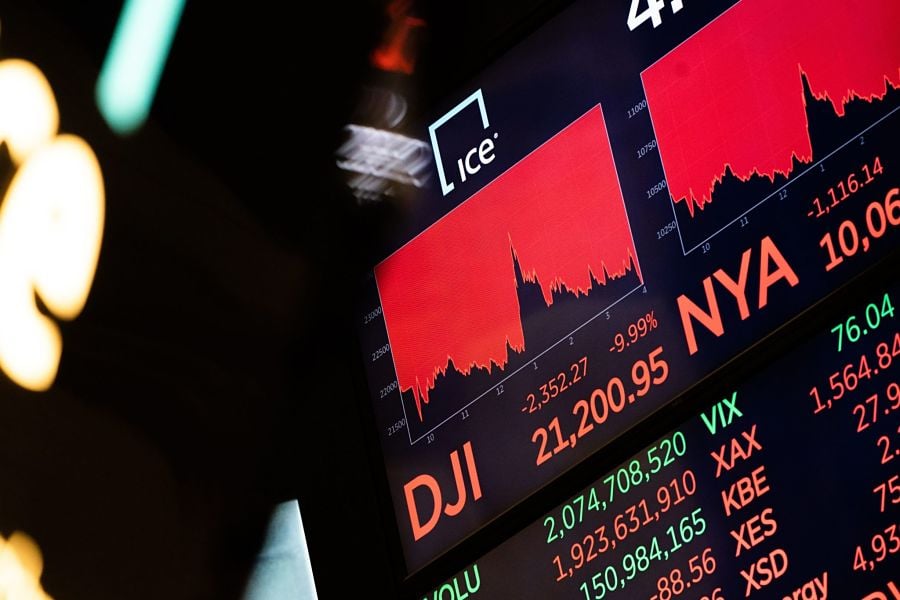

Financial advisers might be keeping a stiff upper lip and presenting a sense of calm to clients during the growing economic and geopolitical unrest, but the general sentiment among financial intermediaries is quietly turning negative.
The results from the latest InvestmentNews quarterly adviser sentiment study shows evidence that 2022 has become a significant turning point for a lot of advisers. For the first time in eight consecutive quarters of surveys, the net outlook over the economy over the next 12 months is negative.
The findings, based on responses from more than 250 advisers, combines positive, negative and neutral outlooks for the economy to produce a 25% net negative result.
By comparison, when the same survey was conducted three months ago, the 12-month outlook for the economy was a 7.2% net positive number. But the trend was moving toward negative, considering that the net positive number was 18.2% six months ago, and 45.9% nine months ago.
“The shifts are very much a reaction to recent events, including the global instability and the Fed finally getting around to raising interest rates,” said Devin McGinley, director of research at InvestmentNews.
“This is one of the more volatile sets of results we’ve gotten,” McGinley said. “A lot has changed this quarter.”
While the start of the year has seen a significant slowdown in the two-year-old Covid pandemic, financial advisers are now factoring in a war between Russia and Ukraine alongside the ongoing challenges of rising inflation and more uncertainty about the overall health of the U.S. economy.
Asked about the juxtaposition between the way most advisers encourage clients to look beyond short-term challenges, and the survey results showing negative adviser sentiment, McGinley said it's an example of the challenges advisers face when dealing with clients.
“Advisers always encourage their clients to be long-term investors, but you have to protect portfolios when there’s a change in the cycle,” he said.
Along with the declining outlook for the economy, the survey also revealed a new net low outlook for the stock market over the next 12 months.
The 27.7% net positive outlook is down from 36.6% three months ago. To be clear, the net outlook is not a forecast for the forward returns of the S&P 500 Index, but the net percentage of advisers that have a positive outlook for stocks.
A deeper dive into the data show a trend toward more conservative investment portfolio management.
For example, 26.5% advisers said they're increasing allocations to cash and cash equivalents, which compares to the 12.6% who made that statement three months ago.
The inflation-hedging ability of gold is also gaining appeal, with 19.3% of respondents planning to increase allocations to the precious metal, compared to 17.8% three months ago.
ESG funds took a slight hit in the most recent survey, with 21% of advisers planning to increase allocations to the category, compared to 26.3% three months ago.
Perhaps as a reflection of the stock market’s sudden pullback in March, advisers expressed a generally bullish sentiment on stocks over the next 12 months. More than 48% of respondents in the most recent survey expect the market to be slightly higher than today’s levels a year from now, with 9% expecting it to be significantly higher.
In comparison, three months ago 54% expected the stock market to be slightly higher a year from now, and 8% said it would be significantly higher.
The S&P 500 Index, which is down about 7% from the start of the year has recovered slightly from the 10% correction level it reached in early March.
“We were in correction territory when the survey was in the field, so some of the positive sentiment is probably advisers expecting the market to recover some of the losses,” McGinley said. “In general, advisers have been more positive about the stock market than the economy.”

Relationships are key to our business but advisors are often slow to engage in specific activities designed to foster them.

Whichever path you go down, act now while you're still in control.

Pro-bitcoin professionals, however, say the cryptocurrency has ushered in change.

“LPL has evolved significantly over the last decade and still wants to scale up,” says one industry executive.

Survey findings from the Nationwide Retirement Institute offers pearls of planning wisdom from 60- to 65-year-olds, as well as insights into concerns.
Streamline your outreach with Aidentified's AI-driven solutions
This season’s market volatility: Positioning for rate relief, income growth and the AI rebound
